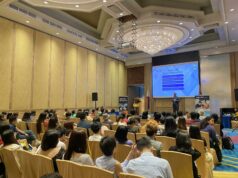I somehow agree with columnist (and former envoy) Rigoberto Tiglao that the Palace spokesmen, through their tactlessness and maybe arrogance (and ignorance), have been fanning the fires of distrust between Taiwan and the Philippines over the recent killing by the Coast Guard of Taiwanese fishermen.
Tiglao was right in saying that instead of pushing forth the idea that the Taiwanese fishermen fished over Philippine territorial waters, for which the Coast Guard justifiably fired at them, they could have stated that the matter is being investigated and Taiwan is invited to send representatives even as observers to these investigations.
The spokesmen (both lawyers) should know better that disputes involve investigations and that the diplomatic way is to invite the other side to the investigation, even if only as observer. But no, they opted to adopt the combative mode, which Taiwan is naturally reacting to.
Pnoy’s choice of personal envoy, Amadeo Perez, was also rebuffed by Taiwan because he neither enjoyed the President’s personal confidence (his appointment to MECO was just a political pay-off) nor was he of the stature to enjoy Taiwan’s respect.
That he carried with him the President’s message is inconsequential and irrelevant. The President should have sent his personal troubleshooter, Mar Roxas or Vice President Jejomar Binay. Alas, both were too busy campaigning for the May 13 elections they had no time for this concern.
So now, the Philippines has to suffer in trade, tourism and overseas employment because of these lapses.
q q q
Remaining communist allies, China and North Korea, are now exchanging demands over the supposed detention by North Korea of a Chinese fishing boat and its 16 crew, who reports said were seized by gun-wielding North Koreans in early May in exchange for a 600,000 yuan (or $100,000) ransom.
Reports said the owner of the fishing vessel, Yu Xuejun, who wasn’t on board, wrote on his microblog that Koreans seized the boat on May 5 on Chinese waters but which the North Koreans are claiming as their territorial water.
Let us see what happens here. China versus North Korea seem to me like an unthinkable fight.
q q q
Dante Garcia of Inquirer.net (US Bureau) was one of 30 observers, four from the US, who were sent to document instances of political violence and intimidation, vote buying and various illegal practices and the general voting process in the Philippines last May 13.
His observations, published by Inquirer are: Vote buying is a continuing “part of the [electoral] game,” as was widely acknowledged by local politicians and voters alike.
In various regions, violence and intimidation continue to be used as tools of electoral politics, but in contrast to data from the 2007 and 2010 election cycles we observed a notable decrease in election-related violence and intimidation.
Still, the very nature of electoral violence distorts the process or distracts people’s attention from competing political promises and agendas. We saw how violence continues to undermine the rights of voting Filipinos.
We learned how political dynasties have developed an economic dependency on their political power, which they use as an instrument of graft.
Thus, political dynasties have raised the stakes in local elections by practicing patronage politics, intimidation and violence to secure electoral wins. Yet, we also witnessed challengers and their supporters defeating many political dynasties at the local level.
Overall, the tenacity of Filipinos to practice their democratic right is commendable. From what we observed, the Board of Election Inspectors, election volunteers, provincial Philippine National Police personnel, Comelec staff and the military worked diligently to make this year’s elections possible.
In comparison, in the face of political dynasties, vote buying, violence, intimidation, stifling heat, and long queues a greater percentage of Filipinos continually come out to participate in the democratic process of midterm elections than in the US.




